Computing polygenic scores for cognition in diverse human populations- insights into dementia
Faculty: Yogesh Simmhan (CDS) and Bratati Kahali (CBR)
Dementia is characterized by neurodegeneration and cognitive decline, beyond what might
be expected from the usual consequences of biological ageing. Findings from genomics and
human genetics research are crucial for efficient translation paving the way for improved
healthcare. For this, we need to build models that assess polygenic score (PGS)- an estimate
of individual level genetic risk for susceptibility to a disease based on their genetic profile.
These models currently rely on allele frequencies of Euro-centric data and hence suffer from
accuracy and portability issues in Indian population. These methods work by understanding
the genetic architecture of a disease phenotype in a particular population. We will leverage
the population-specific linkage disequilibrium structure of the Indian population that will
enable training of better PGS models applicable to Indians, and South Asians in general. In
this project, we will estimate polygenic scores (PGS) for cognitive measures by employing
traditional shrinkage-based prediction methods. Additionally, we will apply machine
learning for risk prediction using single-nucleotide polymorphisms and genomic structural
variations. We will also integrate environmental factors, neuroimaging parameters and
functional genomic (expression) data. This will be done within the context of genome-wide
association studies of cognition and co-occurring complex risk factors, such as type 2
diabetes and dyslipidemia. Our models could have improved accuracy of prediction by virtue
of incorporating multiple predictors and identify novel feature patterns. We also aim to
identify shared and ancestry-specific risk genes and biological pathways for diabetes,
dyslipidemia, cognitive decline and dementia. The successful execution of this project can
potentially advise precision medicine strategies in dementia diagnosis.
Keywords: computational human genetics, GenomeIndia, GWAS, polygenic risk, structural
variations, machine learning
